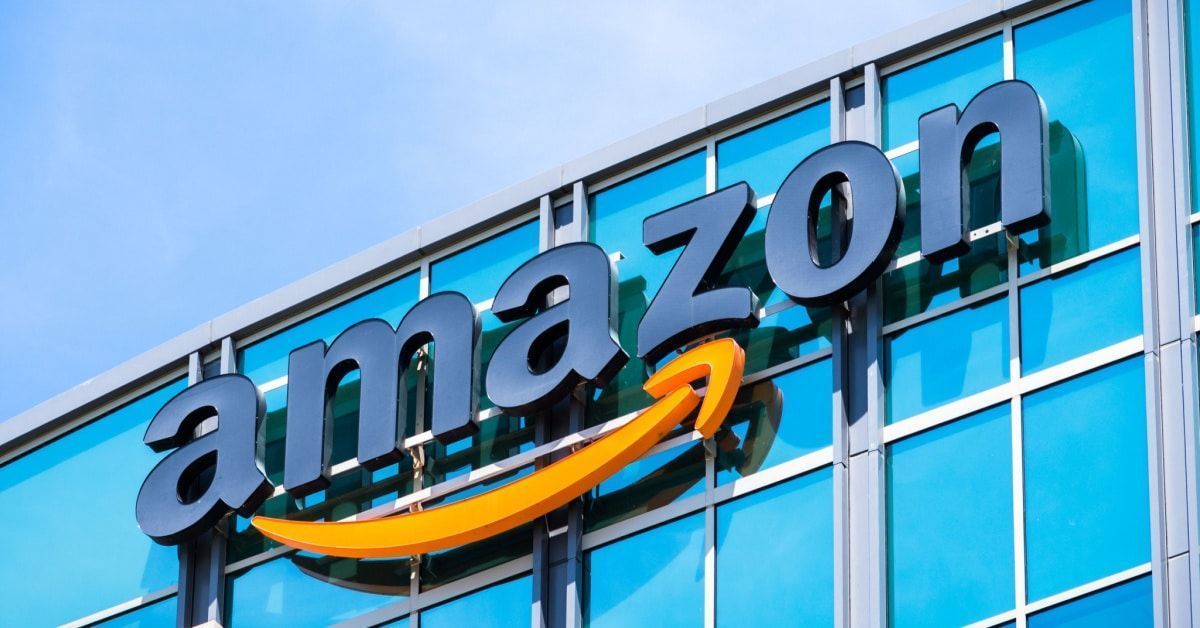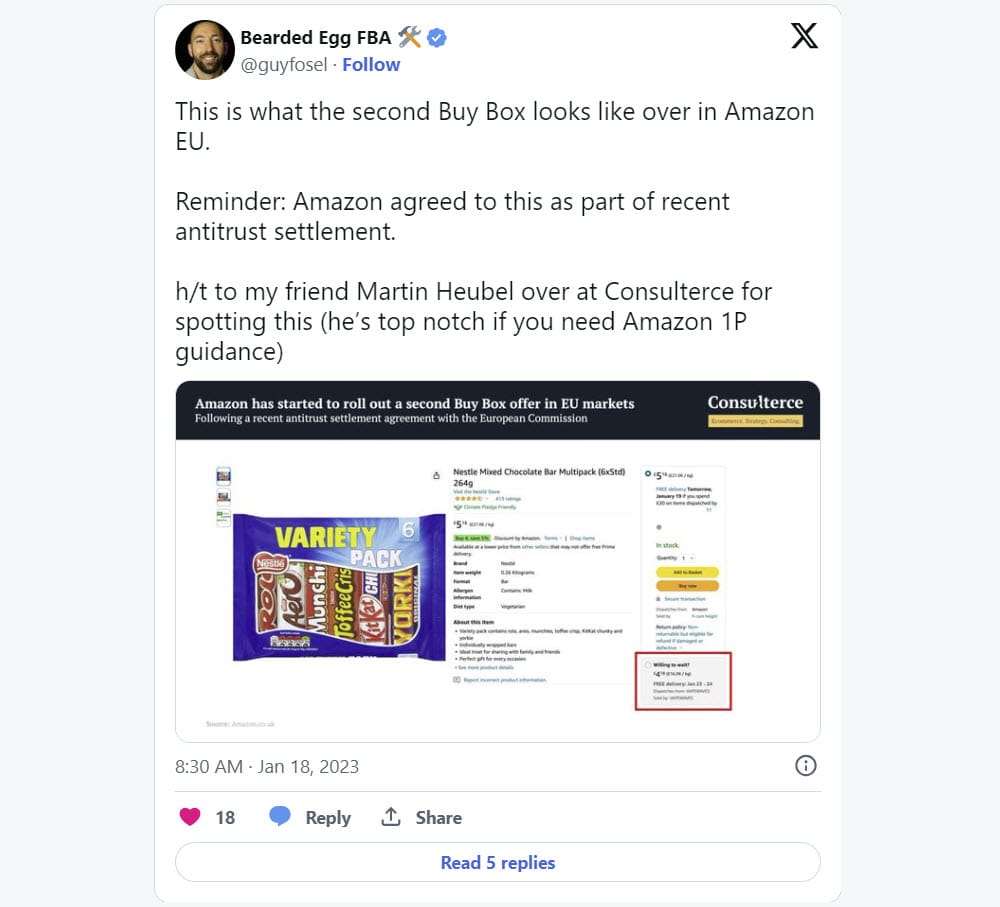Lawsuit Claims Amazon Buy Box Harms Consumers, Steering Them To Pay Higher Prices To Boost Fees
Amazon is facing a proposed class action lawsuit accusing the company of using its ubiquitous Buy Box to steer hundreds of millions of shoppers to higher-priced items in order to earn extra fees, in violation of consumer protection laws.
Though similar to arguments made in the ongoing FTC antitrust suit and other private litigation alleging the "Buy Box" harms sellers that do not join Amazon's fulfillment program, this case is squarely focused on harm done from deceptive practices that drive up prices for consumers.
Jeffrey Taylor and Robert Selway, both residents of California, are seeking damages for Amazon's alleged violations of a Washington state law against deceptive trade practices, which resulted in a "great burden placed upon its customers," according to the plaintiffs' lawyer Steve Berman.
According to the complaint filed in federal court in Seattle, Amazon's algorithm for choosing what to display in the Buy Box often obscures lower-priced options with faster delivery times.
Amazon claims to be a “customer-centric” company that works to offer the lowest prices to its customers, but in violation of the Washington Consumer Protection Act, Amazon employs a deceptive scheme to keep its profits—and consumer prices—high.
It uses a biased algorithm to determine which offers shoppers will see, and therefore which sellers they will buy from, when they search for items on Amazon.
When more than one seller on Amazon’s marketplace offers the same item for sale,an Amazon algorithm selects just one seller’s offer to appear in the “Buy Box” of a given product page. The Buy Box contains “Buy Now” and “Add to Cart” buttons that allow consumers to purchase the item in question. Nearly 98% of the time, Amazon shoppers go with the offer Amazon chooses for the Buy Box.
Customers can opt for a different offer than the Buy Box selection, but they rarely do, in part due to the one-click convenience of the purchase, but also because Amazon doesn’t make other options very conspicuous.
To select a different offer, consumers have to locate the inconspicuous text that says “Other Sellers on Amazon” or “See All Buying Options,” and then pick from the list that appears.
The suit goes on to say that the Buy Box algorithm is based on multiple biased factors, including giving preferential treatment to offers that are either sold by Amazon directly or by third party sellers who use Fulfilled By Amazon logistics services - which enriches Amazon through additional FBA fees.
The result of the Buy Box algorithm’s biased factors is that offers routinely “win” the Buy Box, even though they are more expensive than other offers in the Marketplace for the same product, because the offer is from Amazon or the third-party sellers that participate in FBA— and pay Amazon the requisite FBA fees.
Despite presenting the Buy Box winner as the offer consumers would prefer if they viewed all the available options,42 Amazon’s Buy Box algorithm deceptively preferences offers from Amazon itself and third parties that participate in FBA, even when there are lower prices on otherwise identical offers from sellers that don’t use FBA.
Its own records reflect that rather than serving the interests of consumers, it is Amazon’s increased profits from FBA that are the relevant factor in awarding the Buy Box to those sellers.
The case is Taylor et al v Amazon.com Inc, U.S. District Court, Western District of Washington, No. 24-00169.
Similar concerns about Buy Box practices were raised as part of antitrust issues in Europe in 2022. Amazon reached a deal with EU regulators at that time that included changes to how sellers are ranked for Buy Box inclusion and the addition of a second Buy Box to "display a second competing offer...if there is a second offer from a different seller that is sufficiently differentiated from the first one on price and/or delivery."

Excerpt from the European Commision's findings:
In parallel, on 10 November 2020, the Commission opened a second investigation to assess whether the criteria that Amazon sets to select the winner of the Buy Box and to enable sellers to offer products under its Prime Programme, lead to preferential treatment of Amazon's retail business or of the sellers that use Amazon's logistics and delivery services.
In the second investigation, the Commission preliminarily concluded that Amazon abused its dominance on the French, German and Spanish markets for the provision of online marketplace services to third-party sellers.
It also preliminarily concluded that Amazon's rules and criteria for the Buy Box and Prime unduly favour its own retail business, as well as marketplace sellers that use Amazon's logistics and delivery services.
Relevant commitments Amazon agreed to as part of the deal to settle these European antitrust concerns:
- Treat all sellers equally when ranking the offers for the purposes of the selection of the Buy Box winner.
- Display a second competing offer to the Buy Box winner if there is a second offer from a different seller that is sufficiently differentiated from the first one on price and/or delivery. Both offers will display the same descriptive information and provide the same purchasing experience.
- Improve the presentation of the second competing Buy Box offer by making it more prominent and to include a review mechanism in case the presentation is not attracting adequate consumer attention.
European consumers began to see the second Buy Box solution implemented on the site early last year.

Could this class action force Amazon to do something similar here in the US and if so, do you think it would be positive for consumers? Let us know in the comments below!

















